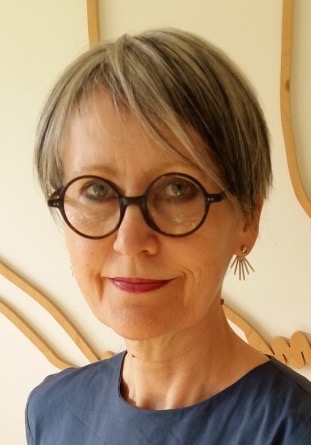The Studio Nap
- Elise V Allan

- Jun 10, 2020
- 3 min read
First posted January 2018
I used to work in a well-known studio complex in Glasgow, and often miss the daily contact with other working artists. My studio was in a corner with both south and east facing windows, with lovely but inconvenient direct sunlight on the rare occasions that the sun shone. The corner position meant that I entered through the adjacent studio, and over the years I had a few different neighbours. Eventually one of the neighbours created a barrier that enclosed their studio, so that they had complete privacy. I too, had a door installed that gave me more privacy. And so we became less aware of the working rhythms of each other, oblivious to each other’s avoidance strategies, time wasting activities and struggles with resistance.
But occasionally, I would knock on my neighbour’s door, with the offer of a cup of tea, and there would be a clear indication that they hadn’t been hard at work. The texture of rug would be imprinted on their face. They’d been napping.
Constantin Brancusi said, “Things are not difficult to make. What is difficult is putting ourselves in the state of mind to make them.”
There are times when it’s possible to walk into the studio and get straight to work, and times when it’s not. From what I hear, and from my own experience of struggle, many artists beat themselves up for their inability to transition from their day-to-day mindset and settle down to work immediately.
My neighbour is not alone in enjoying a brief studio nap. Often I’ve entered my attic studio, now in my own home, looked at what I’d intended to begin, written a few reflections in my journal, tidied up a bit, and then been overwhelmed by a longing for sleep. I’ve discussed this phenomenon with others, and we don’t all agree; some feel it’s resistance and that they need to fight it, some go for stern self-talk and cold air to wake themselves up.
I got curious about it, and I experimented and watched. If I fought it, there was a sense of being at war with myself. If I napped but judged myself for it, I was setting up another war inside. I’ve been inspired and supported in my life towards stopping the internal wars. So instead of fighting it I observed it. What would happen if I took a brief nap without guilt?
"Surrender, not control, is always the path." Victoria Nelson
Now that I worked at home, I could nip downstairs to my bed, set an alarm for 20 minutes later, and take a comfortable nap. When I woke up, I usually found that the drowsiness was gone, along with resistance to working. I was closer to the state of mind that’s conducive to making work. I had descended from my surface mind, and was quiet enough on the inside to pay attention to what my painting was asking of me. Sometimes instead, a short meditation also helps, with no judgement if it becomes an unintentional snooze.
“I have to lose my mind to be able to concentrate.” Hannah Wilke
I haven’t needed a studio snooze for a while; often tidying up and starting with more mundane tasks like stretching paper seem to be enough, most of the time, to “lose my mind”, or at least to turn down the volume. But I have permission to do what’s needed. Permission to stop trying to control. Permission to surrender.




Comments